
Is it possible to live off-grid in Hong Kong? ‘Yeah Man’ grows his own plants, makes fire with sticks and is raising his two-year-old son closer to nature
- Mok Ho-kwong, 36, says we’ve grown up in a spoiled environment where we are told more is good and we buy things we don’t really need
- ‘I love my lifestyle. It’s healthy, environmentally friendly and I can protect animals as I’m a vegetarian,’ he says
Making a fire with sticks, cooking without a stove, getting water from a creek – this is the every day routine for Mok Ho-kwong, a 36-year-old man who chooses to live a simple and green life in the New Territories of Hong Kong.
Mok, who calls himself “Yeah Man” (similar to the Cantonese pronunciation of wild man), started living off the grid 13 years ago.
“I studied leisure management at the University of Hong Kong, but I learned a lot about nature and the environment outside school. I realised the harm we’ve done to Mother Nature, and I didn’t want to continue living a lifestyle that creates a lot of waste and pollution so I chose to live off-grid,” Mok says.
His parents and friends opposed his decision at first, saying he should move back to the urban area and get a proper job.
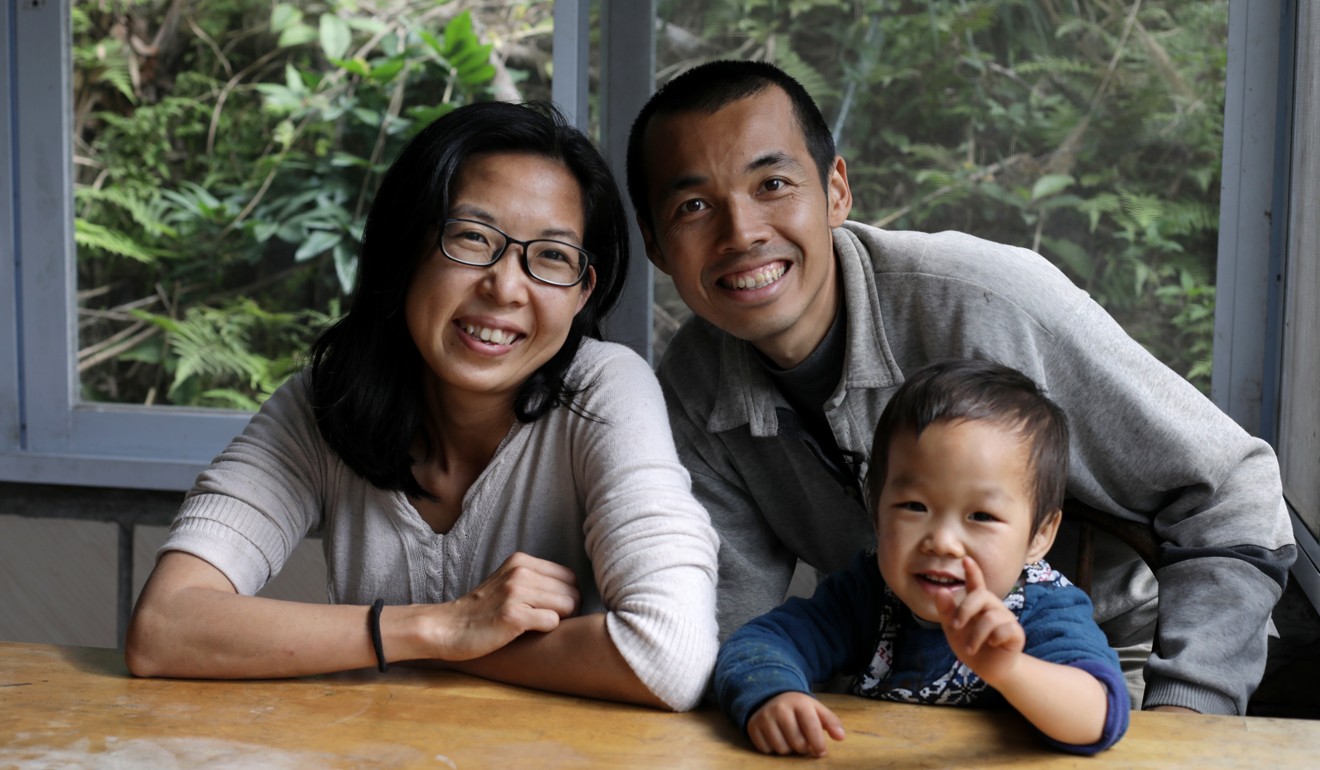
“My parents thought that with my university degree, I could live up to their expectations and get an office job, but I don’t want to live the rest of my life like that, knowing it will go against my will and values,” he says.
Despite his parents’ disapproval, he started renting a house in Pat Heung, north west of the city.
“I love my lifestyle. It’s healthy, environmentally-friendly and I can protect animals as I’m a vegetarian,” Mok says.
He met his wife, Cheng Pui-shan, 37, during an environment protection event in 2003 and they got married in 2012.
“I love living here, I enjoy cooking our own meals and have an enjoyable time with my husband and son,” Cheng said.
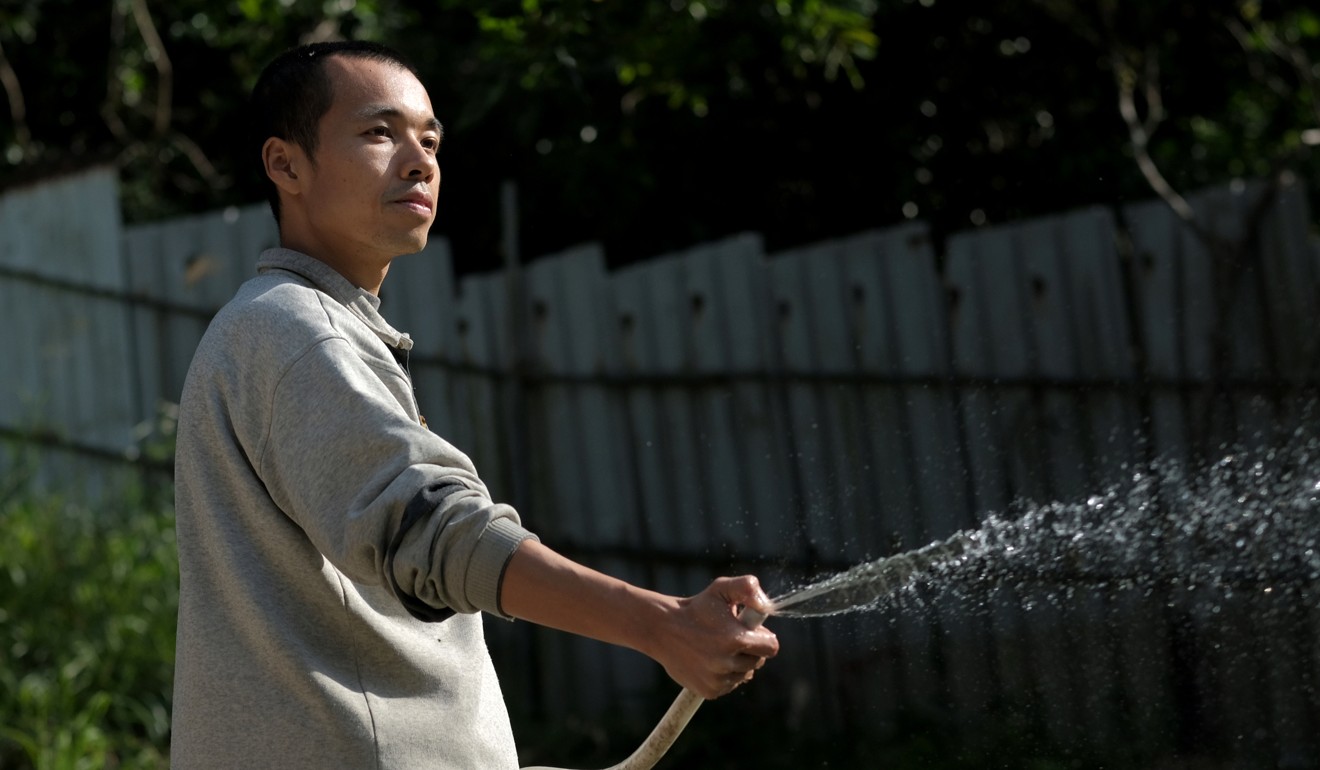
Mok grows his own vegetables in 1,000 sq ft of farmland next to his house.
He says he taught himself how to grow his own plants, such as potatoes, carrots and lettuce.
“I learn from books or ask farmers for advice, and it’s very fulfilling to eat what you’ve planted,” he says as he waters the plants with his two-year-old son, Mok Ki.
Using electricity from solar panels on the rooftop, Mok says the family only needs to pay around HK$30 electricity fee per person. Some 90 per cent of the things in his house are recycled products, such as his washing machines and chairs. The remaining 10 per cent are things he made himself using the garbage other people threw away.
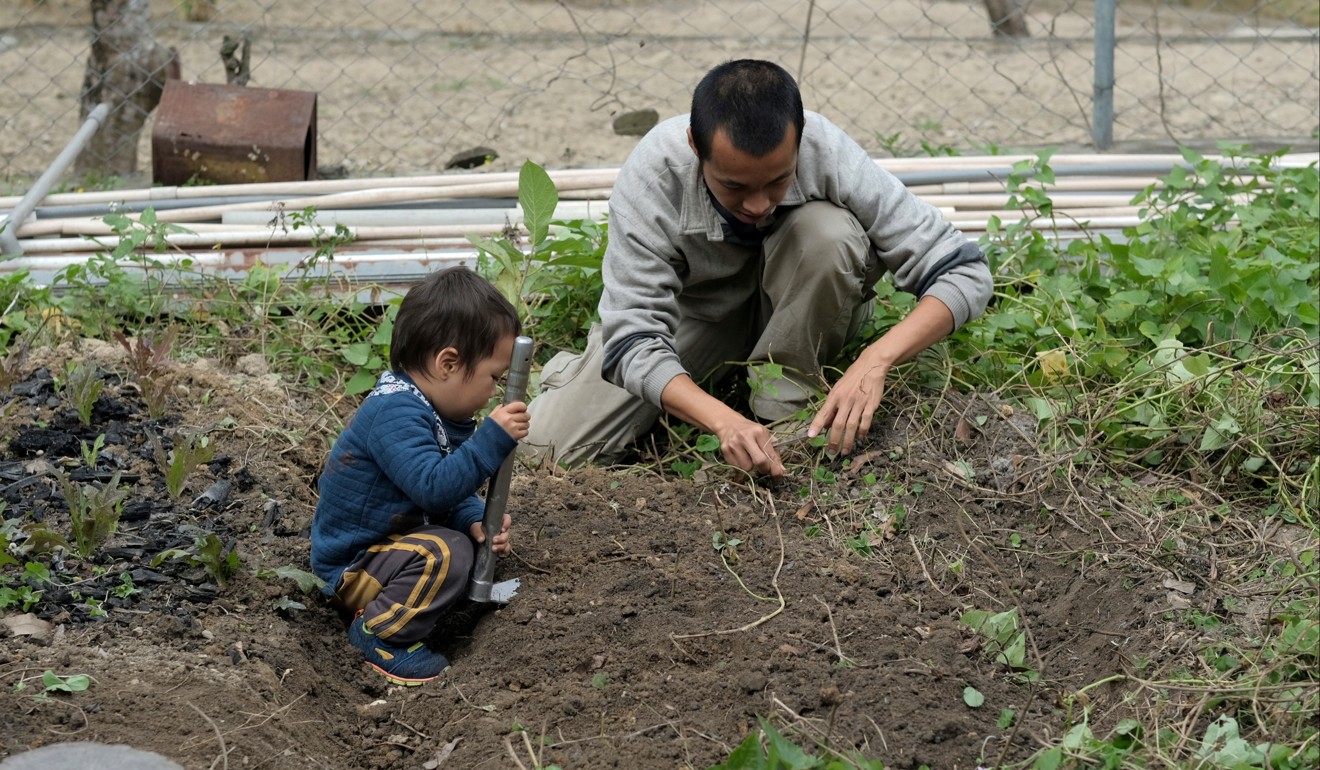
Mok says: “I often made toys for my son using materials that I collected from the garbage stations like the stroller you see right here, using a ring bell from an abandoned bike and wooden boards from abandoned beds.”
He smiles lovingly as he watches his son play happily with the wooden stroller.
“I wanted to give my son something that was from Mother Nature, not toys from a department store that encourage lavish spending and consumerism.”
Mok is not worried his son will be different from other kids.
“He will study in a kindergarten like other kids, but I wanted to raise him in an environment which is close to nature. He helps me water the plants every day, and that’s how I want him to know and experience things by himself,” he says.
“Maybe he will choose to live in the urban area when he’s grown up and I’ll respect his decision then. But for now, I want him to live close to nature.”
Last Christmas, he built a two-floor tree house using abandoned bamboo sticks from the flower market.
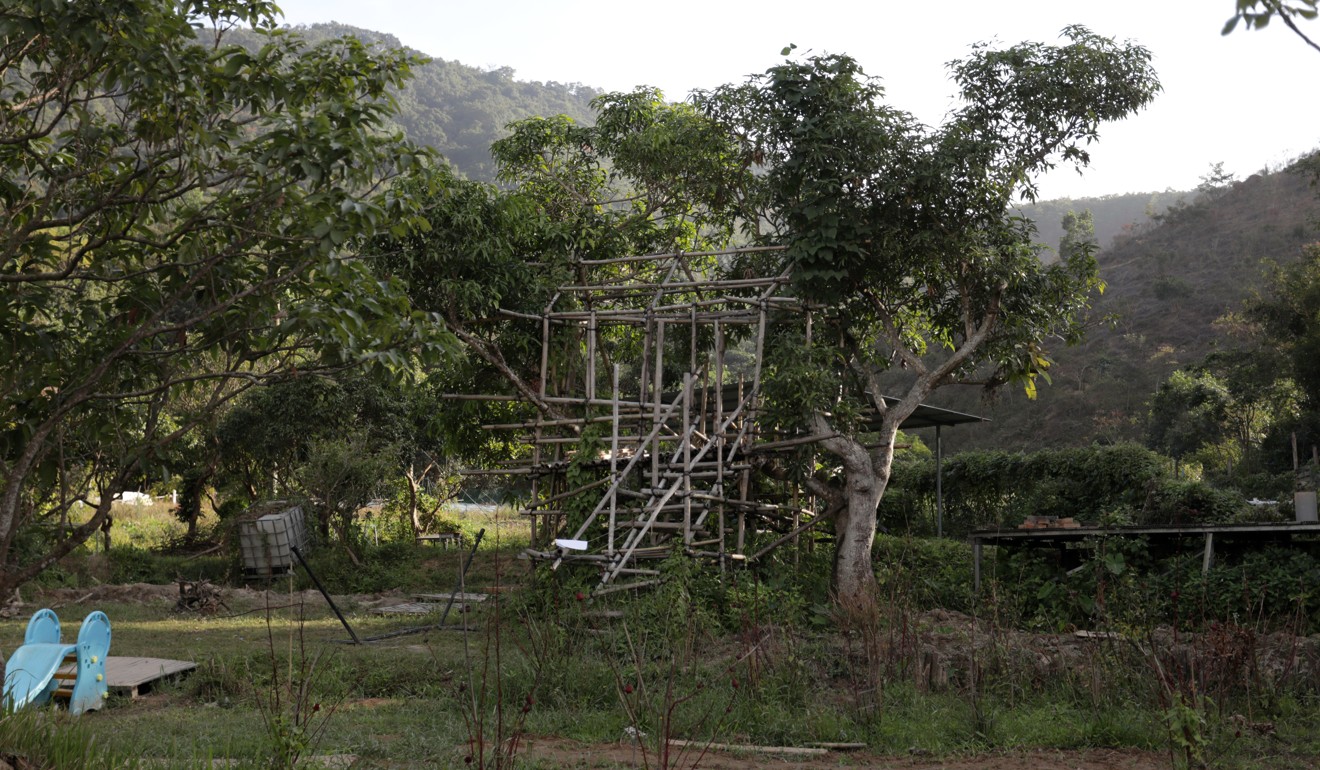
“I trained on how to construct things using bamboo sticks for 100 days and I built tree houses with six other parents for our children. It’s a unique gift because we built it with our own hands – it was a wonderful feeling to see our kids climbing and playing in it during Christmas, it’s something you can never buy with money,” Mok says.
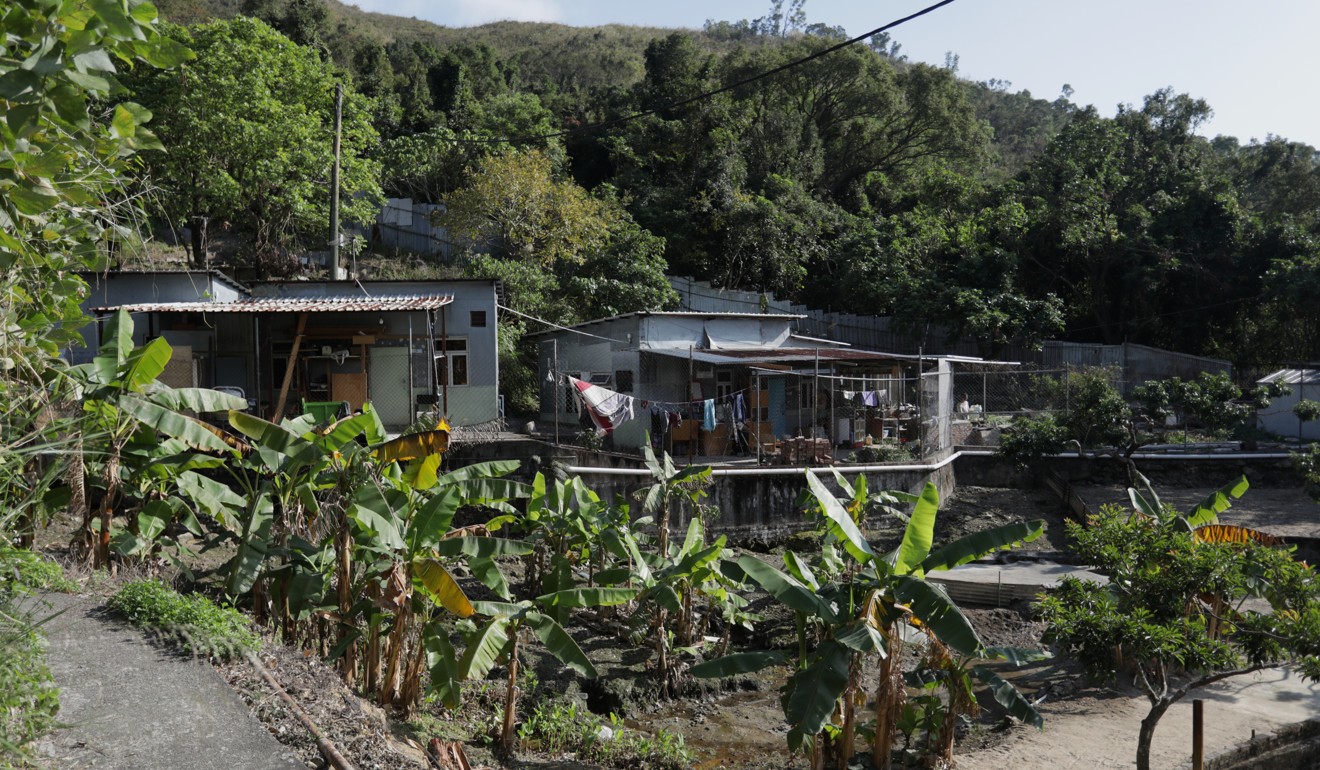
Some people think it’s impossible to live off-grid in Hong Kong, but that’s not true
“Garbage is a resource. The things are not as worthless as people think. If put in the right place, they can be useful. People are the same. Students who get bad grades at school are not useless, they can contribute to society and make a positive impact such as devoting themselves to promoting green living or organising activities for the underprivileged,” he says.
“Like this table I just made using part of a kitchen door and wood pieces from beds – people threw them away thinking they were useless, but this is not the case. It’s fulfilling to make things myself. Now my wife can make food on this huge table with my son,” Mok says as he put the final touches on his latest work.
“Some people think it’s impossible to live off-grid in Hong Kong, but that’s not true. Ninety per cent of what I’m doing right now, people can do in their daily life. I think the essence of living a green life is learn to appreciate nature, treasure the resources we have, use less chemicals and recycle materials as much as possible,” he says.
“But we’ve grown up in a spoiled environment where we are told more is good, we buy things we don’t really need and use single-use plastics which all go to landfill eventually,” he adds.
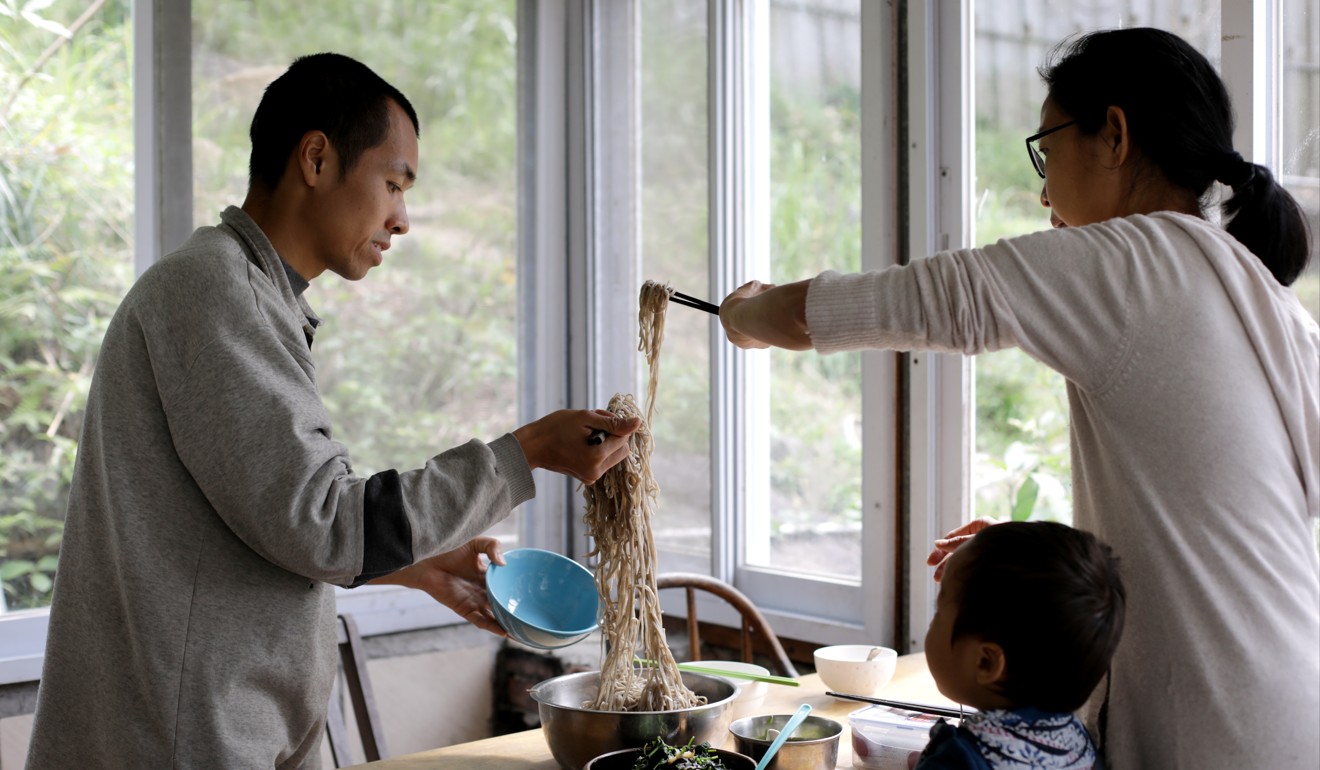
Mok works 3½ days at his Natural Network Educational Farm in Sheung Shui and runs workshops about green living, including building tree houses or planting fruit in the farm.
He said he is living his dream life now, and he’s very content.
“I’ve got everything I want in life: a loving family, a job which contributes to society and I live in the way I want – green living. What else do I need? It’s perfect life.”
